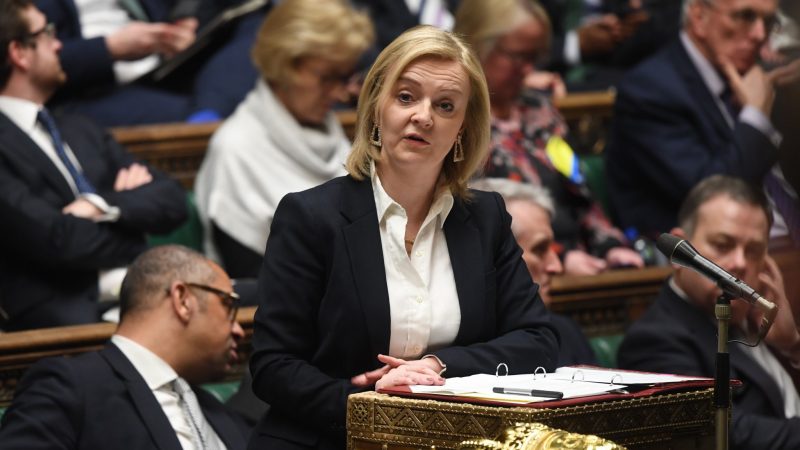
“We have to be fiscally responsible,” Liz Truss told BBC Radio Four’s Today programme when asked whether her government would uprate benefits in line with inflation. You may be wondering if this is the same Liz Truss whose Chancellor announced a string of unfunded tax cuts less than two weeks ago – an announcement that sent the markets into meltdown, forced the Bank of England into emergency action and provoked a public rebuke from the International Monetary Fund. Rachel Reeves declared on Monday that Kwasi Kwarteng’s mini-Budget showed that the government’s “instincts” were to “cut taxes for the wealthiest in society paid for by borrowing”, loading the cost onto current and future taxpayers. The Prime Minister’s continued refusal to rule out a real-terms cut to benefits – while guaranteeing that pensions will rise in line with inflation – shows us again where this government’s priorities really lie.
It was a busy start to the week for the Shadow Chancellor, reacting to the ongoing drama at Conservative Party conference. Following his embarrassing U-turn on plans to scrap the top rate of income tax, Kwarteng gave a masterclass in delusion during his speech to conference. He admitted that his mini-Budget had caused “a little turbulence” but doubled down on the proposals he had set out, telling his audience: “We have a plan, and we need to get on and deliver it. That is what the public expect from the government.” The Chancellor declared: “There is no path to higher sustainable growth without fiscal responsibility. Conservatives have always known this, and we know it still.” Without a shred of irony, Kwarteng then took at swipe at the opposition’s economic record, claiming: “We remain absolutely committed to being serious custodians of the public purse. This is what defines us and separates us from the Labour party.”
Following the speech, Reeves accused the Chancellor of showing no understanding of his party’s “appalling record on growth”. She demanded again that the mini-Budget be reversed and urged the government to abandon its “discredited, dangerous trickle-down approach” to the economy. “This is an economic crisis made in Downing Street, paid for by working people,” the Shadow Chancellor declared. Labour has put pressure on the government to recall parliament early from conference recess to scrap the mini-Budget in its entirety. Reeves has called on Tory MPs to support the opposition’s demand, arguing that those who do not will be “complicit in this reckless bout of economic self-harm”.
Tory opposition to scrapping the top rate of income tax was surely a key consideration in Truss and Kwarteng’s eventual U-turn. And influential figures within the party have already broken with Truss’ current line on uprating benefits – including former leadership rival Penny Mordaunt, who said it “makes sense” to do it by inflation. Failing to pass the mini-Budget because of a Tory rebellion would be a devastating blow for Truss’ fledgling (and flailing) government. It remains a very real possibility that there are more U-turns to come.
Sign up to LabourList’s morning email for everything Labour, every weekday morning.



More from LabourList
‘As metro mayors gain power, Labour must tighten political accountability’
Letters to the Editor – week ending 22 February 2026
‘The coastal towns where young people have been left behind by Whitehall’